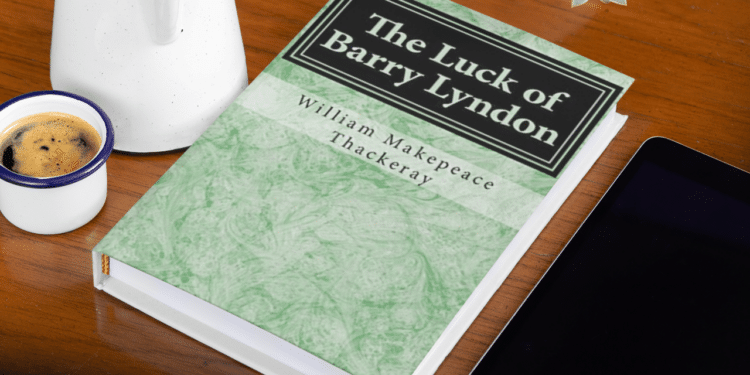William Makepeace Thackeray was a British novelist and satirist who was born in Calcutta, India, in 1811. His father was an English civil servant who died when Thackeray was only five years old, and thereafter, he was sent to England to be raised by his mother’s family. Thackeray attended Charterhouse School and Trinity College, Cambridge, but he never graduated from either. He traveled to Germany to study law but returned to England to pursue a career in journalism and writing.
Thackeray’s writing style and themes
Thackeray’s writing style was characterized by his use of satire and wit to criticize society’s shortcomings. He was known for his ability to create vivid characters and his use of irony to expose social hypocrisy. Thackeray’s works often dealt with the struggles of the middle class and explored themes such as love, marriage, money, and social status. Some of his most famous works include Vanity Fair, The Newcomes, and Pendennis.
Thackeray’s life outside of writing – love life and friendships
Thackeray’s personal life was not without its share of struggles. He married Isabella Gethin Shawe in 1836, but the marriage was not a happy one, and they separated in 1840. Thackeray struggled with depression and alcoholism throughout his life. Despite his personal struggles, Thackeray maintained close friendships with other writers and artists of the time, including Charles Dickens, Elizabeth Gaskell, and Charlotte Bronte.
Thackeray’s famous quotes
Thackeray was known for his wit and humor, and he left behind many memorable quotes. Some of his most famous include, “It is better to love wisely, no doubt: but to love foolishly is better than not to be able to love at all,” and “Next to excellence is the appreciation of it.”
Thackeray’s best books – The first book, the last book, and books in order
Thackeray’s first book was The Yellowplush Papers, a collection of satirical stories that were published in Fraser’s Magazine in 1837. His last completed novel was The Adventures of Philip, which was published in 1862. Thackeray’s most famous work is Vanity Fair, which was published in 1848. Other notable works include The History of Henry Esmond, The Newcomes, and Pendennis.
Thackeray’s criticism of society – Backbiting and gossip
Thackeray was critical of the society in which he lived, and he often used his writing to expose its flaws. He was particularly critical of backbiting and gossip, which he believed were prevalent in Victorian society. In Vanity Fair, for example, he exposes the hypocrisy of the upper classes by satirizing their obsession with social status and their tendency to engage in gossip and backbiting.
Thackeray’s influence on cinema – Books or characters becoming movies or other media
Thackeray’s works have been adapted for the big screen and other media numerous times. Some of the most famous adaptations include the 2004 film adaptation of Vanity Fair, starring Reese Witherspoon, and the 1998 television adaptation of Vanity Fair, starring Natasha Little. Thackeray’s characters have also been adapted for other media, such as the character of Becky Sharp from Vanity Fair, who was the inspiration for the character of Blair Waldorf in the television show Gossip Girl.
Thackeray’s relationship with other writers and artists who inspired him
Thackeray was inspired by other writers and artists of the time, and he maintained close friendships with many of them. He was particularly close to Charles Dickens, and the two men often exchanged ideas and critiques of each other’s work. Thackeray was also a great admirer of the works of Shakespeare and Cervantes, and he was influenced by their use of satire and humor.
Other writers to read if you love Thackeray’s work
If you enjoy Thackeray’s work, there are many other writers that you may also enjoy. Some of the most notable include Jane Austen, Charles Dickens, Elizabeth Gaskell, and Anthony Trollope. These writers were contemporaries of Thackeray and shared many of his themes and concerns.
Conclusion – Thackeray’s legacy and why his work, whether rich or poor, is still relevant today.
William Makepeace Thackeray’s legacy as a writer and satirist is still alive today. His works continue to be read and adapted for the big screen and other media, and his influence on literature and culture cannot be overstated. Thackeray’s writing continues to resonate with readers today because of his ability to expose society’s flaws and his use of humor and wit to do so. Whether you are rich or poor, Thackeray’s works are still relevant today and continue to be enjoyed by readers around the world.
Enjoyed what you read? Show your support and fuel our fight by treating us to a coffee or purchasing captivating books of William Makepeace Thackeray on Amazon via this link.
The WFTS crew is fuelled by a fervent desire to safeguard the timeless allure of books, ensuring it never fades in the glare of the big screen.
We’re committed to presenting our work without the distraction of irrelevant and irksome banner ads.
Join us in this modern revolution to uphold the enduring magic of transmuting cherished books into Movies and TV shows









